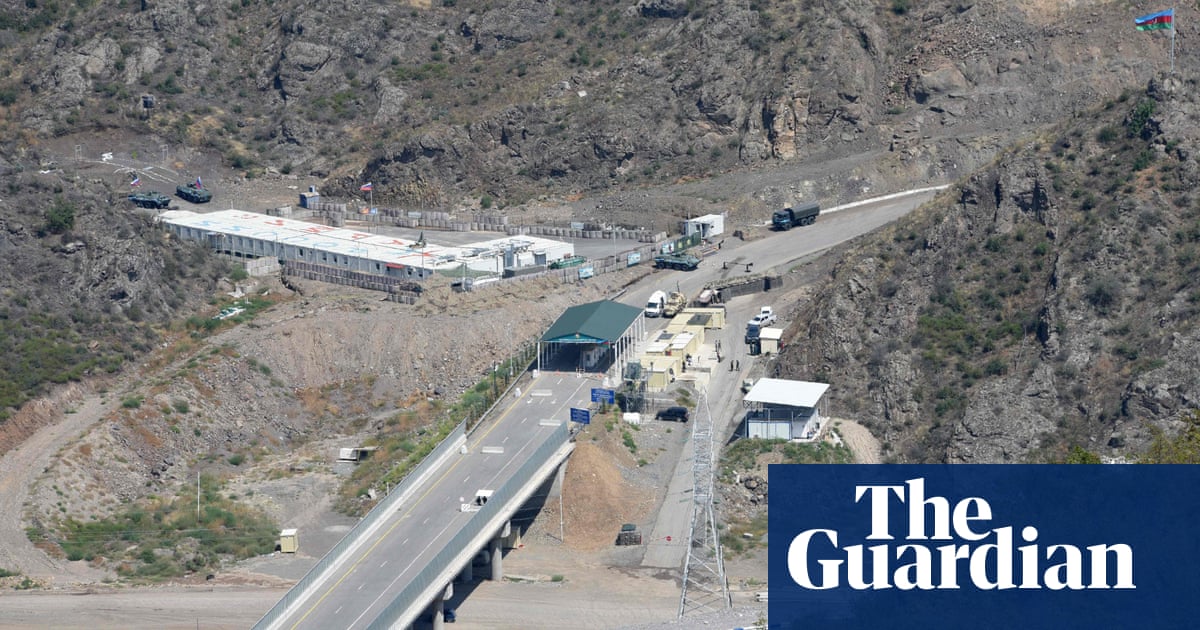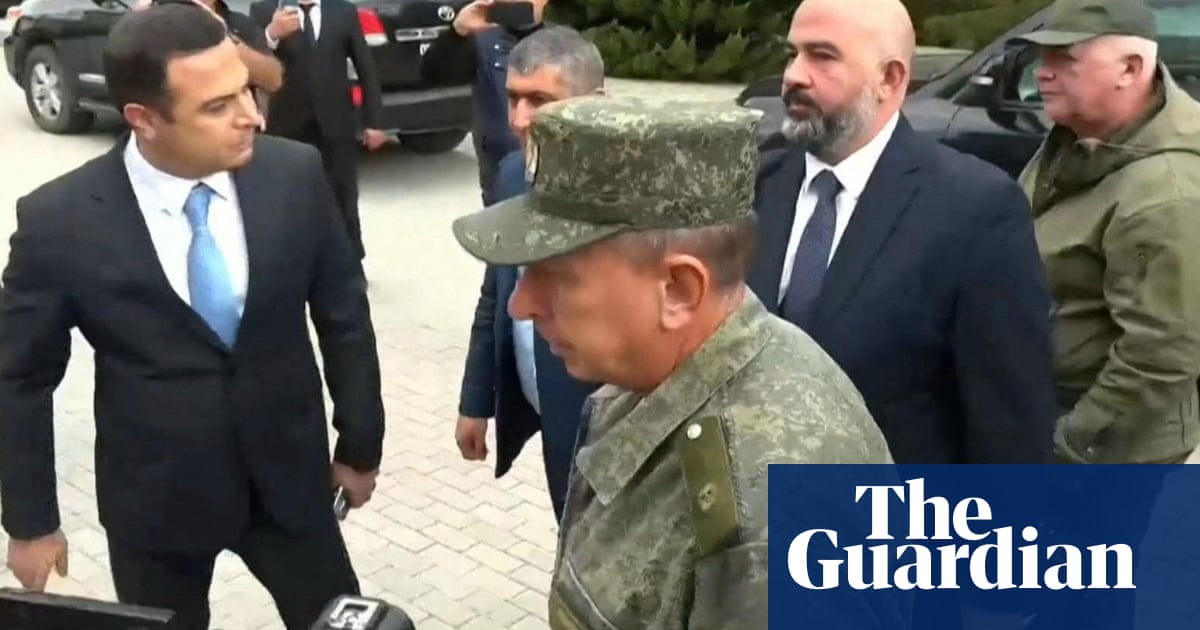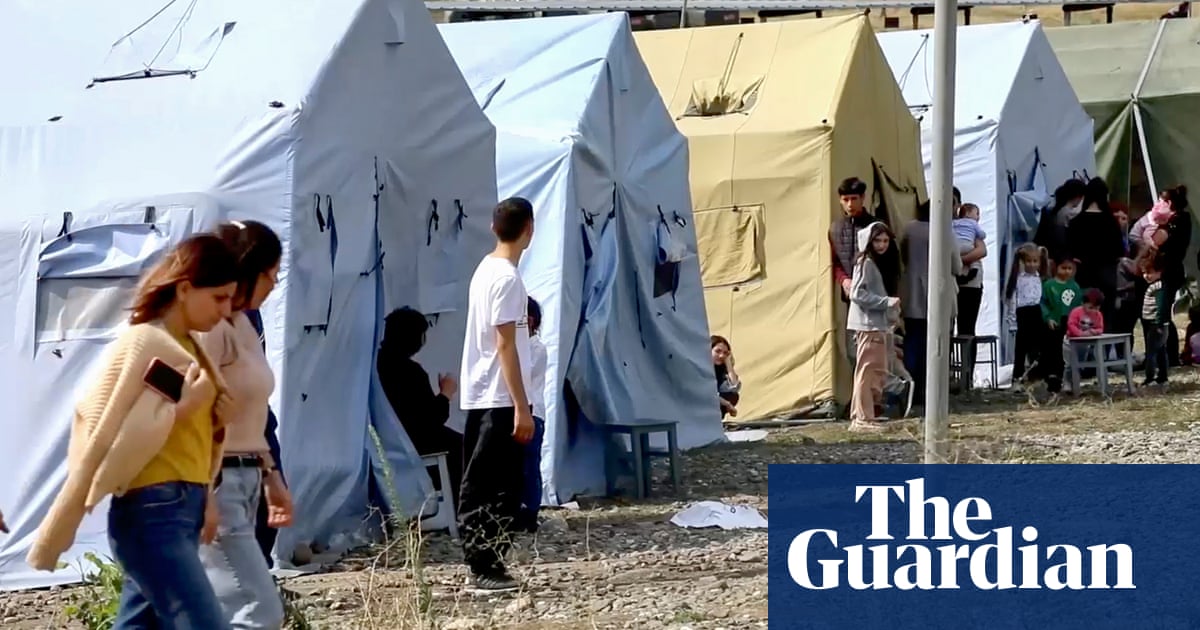
Armenia’s prime minister said on Wednesday he saw no possibility of a diplomatic solution at this stage in the conflict with Azerbaijan over the mountain enclave of Nagorno-Karabakh.
His comments, after Azerbaijan’s president said he believed the conflict could be solved militarily, increased doubts over a diplomatic initiative by major powers to bring peace to the South Caucasus region.
In the latest flare-up of the decades-old conflict, hundreds of people have been killed since Sept. 27 in clashes in and around Nagorno-Karabakh, which is part of Azerbaijan but populated and controlled by ethnic Armenians.
The violence has raised fears of a wider war drawing in Turkey and Russia, which has a defence pact with Armenia, and increased concern about the security of pipelines in Azerbaijan that carry Azeri gas and oil to world markets.
Russian Foreign Minister Sergei Lavrov said on Wednesday he had held separate talks with the foreign ministers of Armenia and Azerbaijan, who are expected to meet U.S. Secretary of State Mike Pompeo in Washington on Friday.
Pompeo said he hoped a diplomatic solution could be found.
“The right path forward is to cease the conflict, tell them to de-escalate, that every country should stay out - provide no fuel for this conflict, no weapons systems, no support - and it is at that point that a diplomatic solution, that would be acceptable to all, can potentially be achieved,” he told reporters.
But hopes that Pompeo’s direct involvement in mediation might lead to a breakthrough were dampened by Armenian Prime Minister Nikol Pashinyan’s remarks in an address to the nation.
“We have to realise that the Karabakh question, at least at this stage and for a very long time, cannot have a diplomatic solution,” Pashinyan said.
“Everything that is diplomatically acceptable to the Armenian side...is not acceptable to Azerbaijan any more.”
Pashinyan had previously said that Armenia was ready for talks based on mutual concessions and a solution acceptable to all sides of the conflict.
Azerbaijan’s main condition for ending the fighting is an Armenian withdrawal from Nagorno-Karabakh. Armenia rules this out, and accuses Azerbaijan of making a land grab.
Azeri President Ilham Aliyev said this month he believed there was a military solution to the conflict, while his aide Hikmet Hajiyev said on Wednesday that Azerbaijan did not expect any breakthrough from the planned talks in Washington.
FAILED CEASEFIRES
Azeri forces, bolstered in recent years by increased military spending and the purchase of weapons from close ally Turkey, say they have made territorial gains in the latest fighting. Nagorno-Karabakh says its forces have repulsed repeated attacks and that the situation is under control.
The fighting is the worst since Nagorno-Karabakh broke away from Azerbaijan as the Soviet Union broke up three decades ago, resulting in a war in which about 30,000 people were killed.
In further diplomacy, Armenian President Armen Sarkissian flew to Brussels to meet leaders of the NATO military alliance and the European Union.
“We are deeply concerned with the violations of the ceasefire agreement that lead to new casualties,” NATO Secretary General Jens Stoltenberg told a news conference after the meeting.
“It’s important that the sides demonstrate restraint, observe the ceasefire regime and sit around the negotiation table.”
Mediation has for years been led by Russia, France and the United States under the auspices of the Organization for Security and Cooperation in Europe (OSCE), the continent’s leading security and rights watchdog.
But Azerbaijan says mediation has achieved nothing in three decades and wants Turkey involved in peacemaking.
Turkey said it would not hesitate to send soldiers and provide military support for Azerbaijan if such a request were made by Baku.
“There has not been such a request from our Azeri brothers yet, but we have said we will support them in any way they wish,” Turkish Vice President Fuat Oktay told CNN Turk.
He also criticised the OSCE’s Minsk group of trying to keep the issue unresolved and supporting Armenia, both politically and militarily.
Russia has brokered two ceasefires since Sept. 27 but neither has held. There was no indication Lavrov had made any breakthrough in his talks with the Azeri and Armenian foreign ministers, Jeyhun Bayramov and Zohrab Mnatsakanyan.
In the latest fighting, both sides said clashes continued in several areas near the line of contact.
Nagorno-Karabakh said 834 of its military personnel had now been killed since Sept. 27, in addition to 37 civilians.
Azerbaijan says 61 Azeri civilians have been killed and 291 wounded, but has not disclosed its military casualties.












